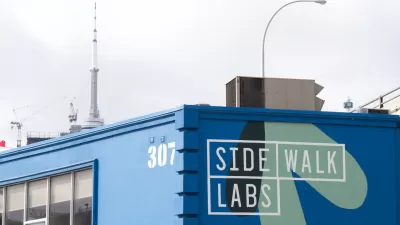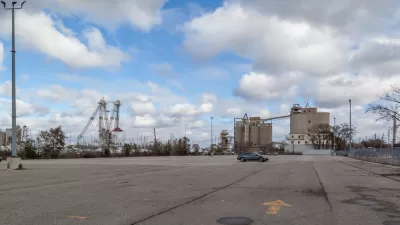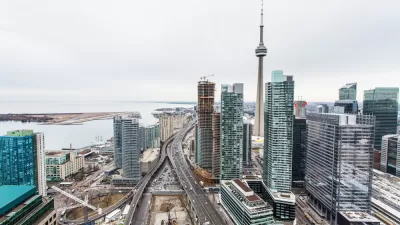The high-profile experiment in smart city planning and technology seems to have suffered a final setback.

Daniel L. Doctoroff, CEO of Sidewalk Labs, posted on Medium this morning to announce that the company is no longer moving forward with its smart cities partnership with Waterfront Toronto.
Sidewalk Labs, a subsidiary of Google parent company Alphabet, had been working to plan and redesign the Quayside district, a 12-acre parcel in Toronto, since 2017.
Sidewalk Labs released the Master Plan for the project in June 2019, encountered controversy, and then scaled the project back in October 2019. In February 2020, the project seemed to have a breakthrough after winning approval from Waterfront Toronto for several large components of the project. The coronavirus delayed hearings on the project in April, and then this news.
Doctoroff explains the decision to cancel the project as a symptom of the economic crisis caused by the coronavirus public health crisis. "But as unprecedented economic uncertainty has set in around the world and in the Toronto real estate market," writes Doctorff, "it has become too difficult to make the 12-acre project financially viable without sacrificing core parts of the plan we had developed together with Waterfront Toronto to build a truly inclusive, sustainable community."
Sidewalk Labs isn't gone for good, however, as Doctorff expresses continuing belief in the concepts of smart city technology, especially in light of the current crisis, and touts the company's other products.
FULL STORY: Why we’re no longer pursuing the Quayside project — and what’s next for Sidewalk Labs

Planetizen Federal Action Tracker
A weekly monitor of how Trump’s orders and actions are impacting planners and planning in America.

Maui's Vacation Rental Debate Turns Ugly
Verbal attacks, misinformation campaigns and fistfights plague a high-stakes debate to convert thousands of vacation rentals into long-term housing.

Restaurant Patios Were a Pandemic Win — Why Were They so Hard to Keep?
Social distancing requirements and changes in travel patterns prompted cities to pilot new uses for street and sidewalk space. Then it got complicated.

In California Battle of Housing vs. Environment, Housing Just Won
A new state law significantly limits the power of CEQA, an environmental review law that served as a powerful tool for blocking new development.

Boulder Eliminates Parking Minimums Citywide
Officials estimate the cost of building a single underground parking space at up to $100,000.

Orange County, Florida Adopts Largest US “Sprawl Repair” Code
The ‘Orange Code’ seeks to rectify decades of sprawl-inducing, car-oriented development.
Urban Design for Planners 1: Software Tools
This six-course series explores essential urban design concepts using open source software and equips planners with the tools they need to participate fully in the urban design process.
Planning for Universal Design
Learn the tools for implementing Universal Design in planning regulations.
Heyer Gruel & Associates PA
JM Goldson LLC
Custer County Colorado
City of Camden Redevelopment Agency
City of Astoria
Transportation Research & Education Center (TREC) at Portland State University
Jefferson Parish Government
Camden Redevelopment Agency
City of Claremont




























